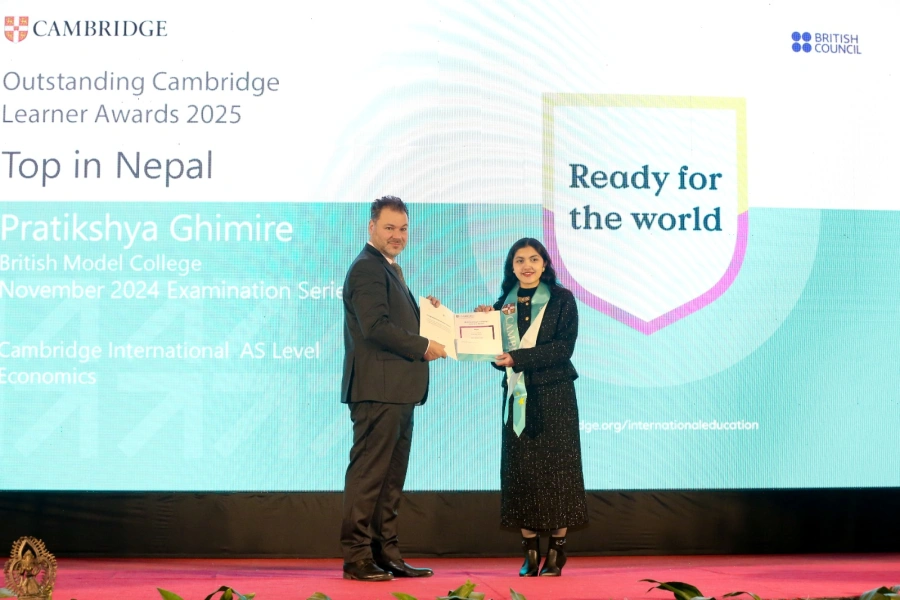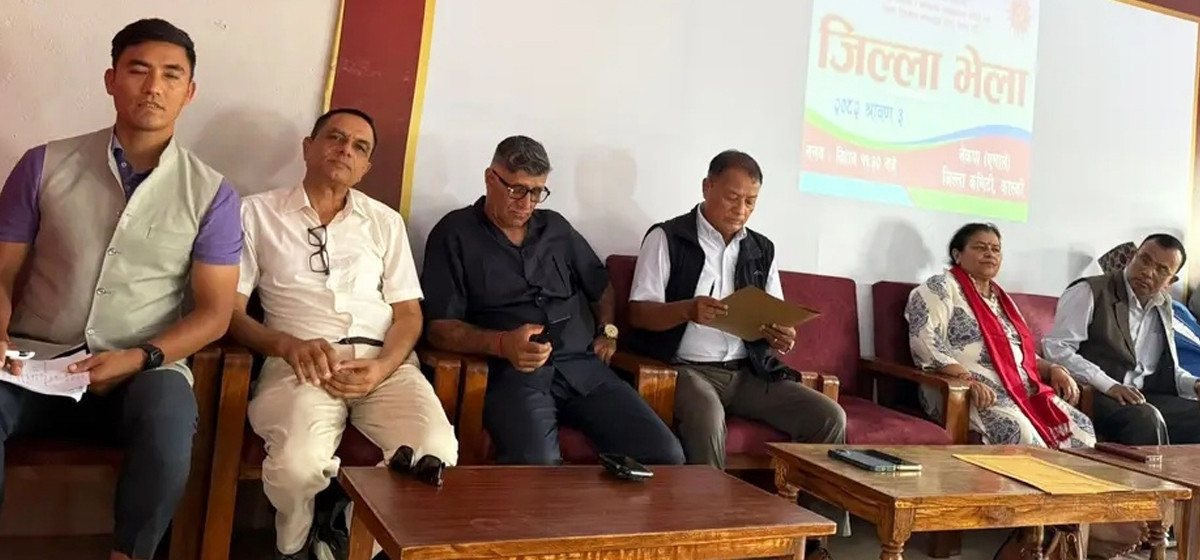Singha Durbar once again saw a change of guard this week with CPN-UML Chairman KP Sharma Oli sworn in as the 45th Prime Minister of Nepal, leading a Nepali Congress-CPN-UML coalition government. Maoist supremo Prachanda was sent packing by more than two-thirds of the 275-member House of Representatives, the lower chamber of parliament, in a vote of confidence motion, thereby paving the way for Oli to rise to the seat of prime minister fourth time.
While the UML and NC cadres and leaders appear to be jubilant in the wake of the change of government, the latest political twist has sent a shock wave to the rank and file of the CPN (Maoist Center) which was also reflected in the speech of Maoist supremo Prachanda in parliament in the course of facing the vote confidence. The overnight change of coalition was the making of KP Oli, about which Prachanda and his other comrades in arms did not have even the slightest hint. This speaks of how frail and feeble was the information system of the government, the Prime Minister and the Maoist party.
This is technically KP Oli’s fourth innings as the prime minister but practically the third one. Every time he came to power, the country was in serious crisis. When KP Oli took up the reign of the country as the prime minister for the first time in October 2015, Nepal was passing through a difficult period. India had imposed an economic blockade which had caused tremendous suffering to the people of Nepal. However, Oli faced the challenge boldly and intelligently due to which Nepal came out of this difficult situation sooner than expected. The second innings of Oli’s premiership too was significant as he was able to bring all parties together in parliament on issues pertaining to Nepal’s territorial disputes with India and amended the constitution in redrawing a new map of Nepal. This not only elevated his image as a patriotic leader but also as a politician who could deal with powers including China and the United States more astutely and in a balanced way.
Speed up testing

Now KP Sharma Oli is at the helm of affairs once again at a difficult time. The country’s economy is in shambles, people’s trust in the political parties and leaders has reached its nadir and bad governance is the name of the game, while foreign policy and diplomatic handling is faltering. Prime Minister Oli has the challenge to revive people’s trust in politics and the political system through ensuring political stability, good governance, corruption control, practical demonstration of political honesty, rescuing the economy and at the same time, bringing foreign policy and diplomatic handling back on track.
Given the number of seats the present coalition has in parliament, it may not have to coax and cajole the fringe parties to hold on to power. Instead the present government can, right from the beginning, fully concentrate its entire efforts and strength on addressing the problems facing the country. The diagnosis has been almost complete and the only thing it has to do is to prescribe the right treatment and right medicine to cure the body politic of the country.
One key issue that brought these two big parties together is, perhaps, the one relating to an amendment to the constitution. It has been almost a decade since the constitution was enforced back in 1915. Based on the experiences over the last nine years, it has been widely felt that some provisions of the constitution need to be amended. The electoral system is one of them. Ours is a mixed electoral system, partly first-past-the post or majoritarian and partly proportionate system. Both the electoral systems have merits and demerits. The first-past-the-post electoral system is the winner takes it all type in which the loser has no space. The proportionate electoral system ensures representation of all based on the votes they secure. But under the proportionate electorate system, one party is less likely to win a majority to form the government on its own. This may cause frequent changes of governments. The proportionate electoral system requires a high level of coalition culture for political stability. Some European countries including the Nordic states have fully proportional electoral systems but have political stability. They build a coalition prior to the election and form the government accordingly. Even if any of the coalition partners disagrees with other partners or the government, it may not join the government and if it disagrees with the policy of its own coalition government, it simply walks away from the government, but will continue to support the coalition until the next election.
However, in Nepal’s case, frequent changes of coalition partners has caused political stability, which is attributed to the mixed type of electoral system. Some experts are of the view that the electoral system has to be changed to form the House of Representatives or the lower chamber of parliament, through the direct or first-past-the-post system while the upper house or the National Assembly on the basis of a proportional and inclusive electoral system. According to them, this will ensure political stability as well as representation in all sections and sectors of society. However, the problem is not solely with the electoral system but also with the honesty and intention of the political parties and leaders.
Moreover, the amendment to the constitution is not as easy as has been thought. Any amendment to the constitution requires the support of the two-thirds parliamentarians in both chambers. For the first place, the Nepali Congress and CPN-UML alone do not have a two-thirds majority even in the House of Representatives. However, they may manage to get the support from the smaller parties in the House of Representatives. But, it will be impossible to get a two-thirds majority in the National Assembly unless the coalition takes the Maoist Center into confidence.
The Maoists have already spoken against the amendment to the constitution and other splinter groups may join this band wagon. Moreover, once the amendment issue practically comes up, it may open the floodgates of problems, about which the two ruling parties, especially Prime Minister KP Oli must be careful enough. This may trigger a new chapter of political turmoil and instability.
All people cannot be leaders. Leaders have to see and visualize more than others, and act more than others. There are generally three types of people or leaders in politics—boss, leader and statesman. Those who are concerned with the interest of a faction within their parties are called political bosses, while those who rise above the factions and are concerned with the overall interest of the party are leaders. Those who rise above the party and work for the larger interest of the country and people are the great leaders or statesmen. Great leaders and statesmen are rare, who possess extraordinary qualities to take all people along, irrespective of ideology and identity. According to a study by the University of Illinois College of Agricultural, Consumer and Environmental Sciences, ‘leadership is actually 30 percent genetic and 70 percent learned’, which means 30 per cent great leaders are born with leadership quality while the rest 70 per cent develop their leadership quality by means of study, practice and action.
KP Oli is one of the senior-most leaders in the contemporary politics of Nepal with a six-decade-long political career marked with multitude of suffering, sacrifice and resilience. He is one of the principal leaders of the Jhapa peasant rebellion of 1969 against the absolute monarchy for which he spent 14 years in jail and suffered torture. His fourth innings as the prime minister is both a challenge and an opportunity for KP Oli. ‘Prosperous Nepal and Happy Nepalis’ is the vision with which KP Oli has risen to power. These are testing times for PM Oli as he prepares to translate his vision into reality through actions, which will preserve his name as a great leader and statesman.






































